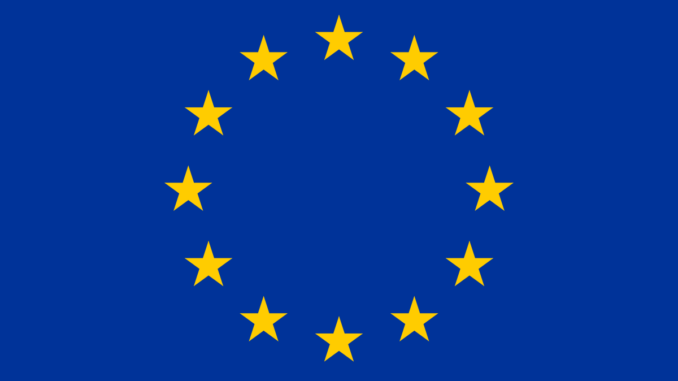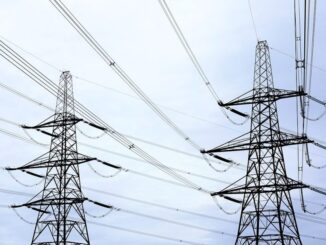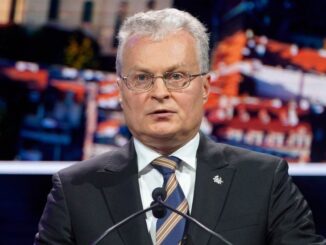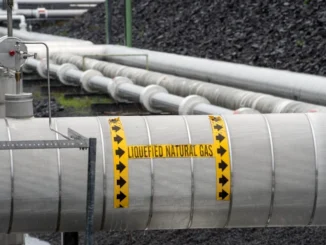
The EU has pledged Eur200 million ($199.8 million) in funding to Moldova to help the Eastern European country meet its gas supply needs, European Commission President Ursula von der Leyen said Nov. 10.
Von der Leyen, speaking at a press conference in the Moldovan capital Chisinau, said the funds should be available from January 2023.
Moldova has struggled to pay for Russian gas imports in 2022 due to much higher prices, and Gazprom reduced supplies to the country from October citing issues with Ukrainian transit.
That prompted Moldova to hold daily auctions for additional imports to meet demand.
“Russia continues to wage its brutal war against Ukraine, creating chaos on global energy markets with its weaponizing of energy. This also threatens Moldova,” von der Leyen said.
“But please know that European solidarity with Moldova is unshakable,” she said, adding that Moldova was currently facing an acute energy crisis. “Rest assured, we are doing everything we can to help you face this crisis.”
The EU has put together an additional energy support package for Moldova, she said, that would include Eur200 million to help Moldova meet its gas supply needs.
“This will consist of Eur100 million in grants and Eur100 million in loans. The money should be available from January 2023,” she said.
The EC is also working with the Energy Community Secretariat to put in place an energy rescue program for Moldova to allow donors to support energy purchases.
“I hope that these measures combined will give Moldova much-needed support as it goes through the winter,” von der Leyen said.
Gazprom threats
Gazprom has repeatedly threatened to halt gas exports to Moldova if importer Moldovagaz missed payment deadlines.
Moldovagaz has struggled through 2022 to meet payment commitments to Gazprom after prices under the long-term contract rose sharply.
Moldovagaz has requested a number of payment deferrals as it looked to secure funds.
Gazprom said it also reserved the right to terminate the supply contract given that Moldovagaz had still not settled its historical debt to Gazprom.
Since October, Gazprom has only been supplying 5.7 million cu m/d of gas to Moldovagaz, well below the 8.1 million cu m/d that should be delivered according to the terms of their contract.
To make up the shortfall, Moldova has held daily supply auctions, and Chisinau is also considering legal action against Gazprom for the undersupply.
Gazprom has said it had reduced the volume due to the force majeure on Russian gas deliveries via the Sokhranivka entry point on the border with Ukraine.
In late October, Moldovagaz CEO Vadim Ceban said the company’s current planning was based on three possible scenarios.
They are — a complete halt in Russian gas supply, deliveries continuing at 5.7 million cu m/d, or Gazprom supplying the requested volumes.
Total demand
Moldova is a fairly significant buyer of gas, with imports of more than 3 Bcm/year.
The country’s demand is divided between the Moldovan territory on the right bank of the Dniester of around 1.2 Bcm/year, and the separatist region of Trans-Dniester on the left bank (2.1 Bcm/year).
The Russian contract price is formulated according to a mixture of prices on the Dutch TTF hub and fuel oil prices.
In December 2021, it was just $450/1,000 cu m, but rose significantly over the summer to more than $1,500/1,000 cu m.
The price for Russian gas supplies in November is $821.58/1,000 cu m, Ceban said, after spot European gas prices fell sharply since September.
Platts assessed the benchmark Dutch TTF month-ahead price Nov. 9 at Eur112.50/MWh, down from the record Eur319.98/MWh in late August, according to data from S&P Global Commodity Insights.
In October 2021, Gazprom and Moldovagaz extended their long-term gas supply agreement for a further five years until September 2026.
Ahead of the new long-term deal, Moldova experienced an acute gas shortage after a last-minute, one-month extension of the agreement with Gazprom at the end of September meant Russian supply for October had been lower than hoped.
Moldova was forced to hold a number of daily tenders for the supply of gas from European traders to meet demand, having declared a state of emergency.
Among the suppliers at that time were Ukraine’s Naftogaz Ukrayiny, Poland’s PGNiG, as well as traders DXT Commodities and Vitol.



